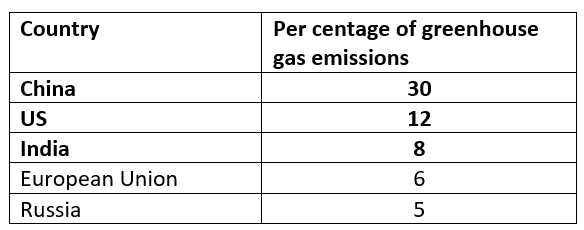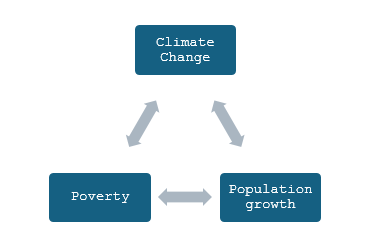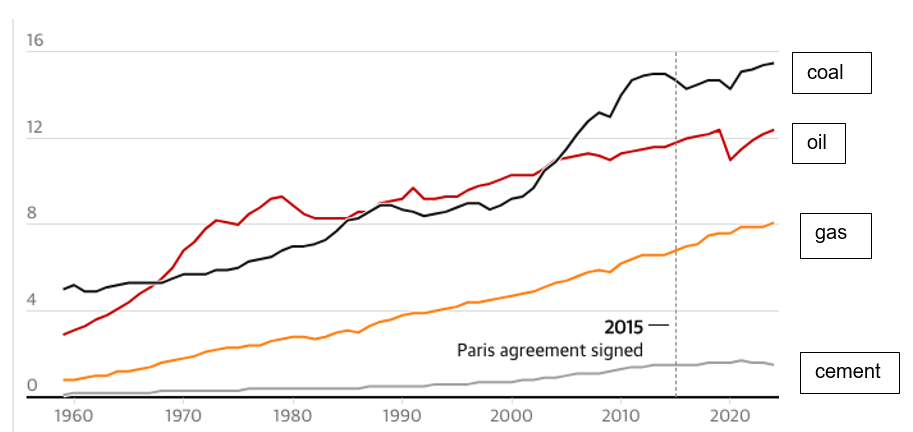The most recent international climate change conference has come and gone. Greenhouse emissions are still increasing and global temperatures this year are already 1.5 degrees above pre-industrial levels – the target of the 2015 Paris conference. The recent devastating floods across the Sahel and Nigeria are a direct illustration of climate change. They affected more than three million people, killing hundreds, causing further displacement, damaging vast areas of agricultural land and leading to a worrying increase in cholera and malnutrition. As Action Aid says: “The effects of climate change are hitting many of the world’s poorest people first, and hardest. And they’re making poverty worse.”The greenhouse gases that cause global heating are mainly emitted by companies a few key countries. Half of these gases are emitted by China, US and India.

This is really just a measure of the importance of manufacturing and industrial farming in these countries. Much of China’s contribution is then exported to the US, EU and Japan as manufactured goods – so their responsibilities are greater than these figures suggest. Russia (and Nigeria) are major oil exporters and so their impact is greater. China’s contribution is partly due to its massive population, but its per capital contribution is now even higher than that in Europe (despite China investing massively in solar and wind generation).The real commitment of the governments of the US and EU to addressing climate change is shown by their tariffs for electric vehicles coming from China. EU has a tariff of 50% and US is proposing 100%. This is to protect their car industries, but the result massively increases the prices of electric vehicles and so discourages a move from petrol and electric vehicles.Nigeria’s share of greenhouse gas emissions is only 0.75% of the global total, but its oil production is in the top 15 countries in the world. It could easily reduce its contribution by stopping gas flaring in the Niger Delta. Despite this small contribution, the poor of Nigeria are suffering massively.Nigeria has the second largest population exposed to the effects of climate change. These include:
• Less, but more uneven rain causing desertification in the north
• Flooding
• Raising temperatures
• Coastal erosion in Niger Delta and Lagos loosing.
It is the poor that are suffering from climate change. The rich can always buy their way out. Population change and poverty are making the impact climate change far worse. They are creating a vicious downward spiral – we have to stop this.

The rate of increase of green house gas emissions has slowed over the last decade or so, as the rollout of renewable energy and electric vehicles has accelerated. So change is happening, just too slowly to stop much of the devastation. The Nigerian Government’s answer is to move from petrol to gas driven cars – this will obviously not help.

If global demand for oil reduces what will happen to the price of oil? How will this impact government income in Nigeria? Oil revenue accounted for a third of Federal Government income in 2023.
To read more on global heating impacts globally and locally see:https://socialistlabour.com.ng/2024/11/21/climate-change-global-and-local-impacts-time-for-change-2021/






